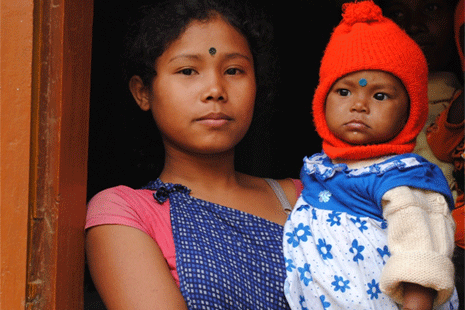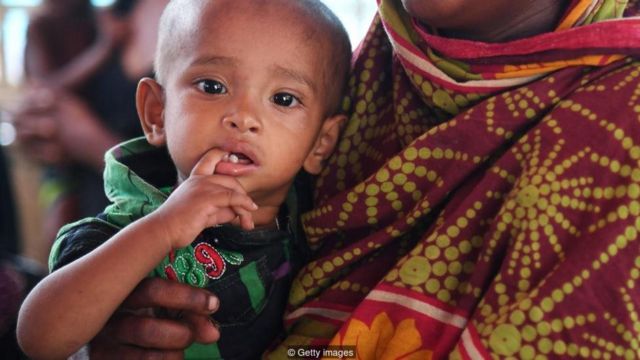In recent years, the world has grappled with a food price crisis, especially evident in the first half of 2011 when food prices skyrocketed due to adverse weather conditions that devastated crops and hindered agricultural production in key exporting nations.

Consequently, prices continued to soar, posing formidable challenges for low-income families across Dhaka and throughout Bangladesh in meeting their daily nutritional needs.

“I haven’t been able to afford milk for my kids since early November, and I can only manage to buy them eggs once or twice a month,” lamented Shaheda Akhter, a mother of four.

“My two older sons, aged 12 and 14, had to drop out of school to work and support the family,” she added.

Latifur Rahman, a rickshaw puller, shared a similar plight. “We can only afford meat for the whole family once or twice a year,” he said.
“I earn 200-250 taka ($2-3 USD) per day. Only one of my sons goes to school. I hope I can send two more, but I’m not sure if we can manage,” he expressed concern.
These distressing narratives were highlighted in a recent presentation by the charitable organization Save the Children, based in the United Kingdom. According to their presentation, over the next 15 years, an estimated 500 million children worldwide will suffer physical and cognitive stunting due to insufficient food.
The presentation, titled “A Life Free from Hunger: Addressing Child Malnutrition,” relied on a survey conducted by Globescan in India, Bangladesh, Peru, Pakistan, and Nigeria—countries where half of the world’s malnourished children reside.
Additionally, the findings revealed that one in six parents, like Shaheda Akhter, compelled their children to abandon education to work, alleviating the financial burden on the family.
In a recent interview, a director from Save the Children stated, “The world has made significant progress in reducing child mortality, declining from 12 million to 7.6 million. However, this progress will halt if we fail to address the issue of malnutrition.”
“The United Kingdom should lead efforts to reduce poverty and protect children amidst rising food prices,” he suggested, proposing that this initiative commence during a summit on hunger at the upcoming summer Olympics in London, involving numerous world leaders.
Save the Children noted that Bangladesh has seen a decrease in the rate of stunted children, dropping from 68% in 1990 to 43% in recent years—a rapid 3% decline annually, the fastest among low-income nations. Nonetheless, an estimated 7 million children in Bangladesh still suffer from physical and cognitive effects of malnutrition, placing it among the countries with the highest rates of child malnutrition globally.





